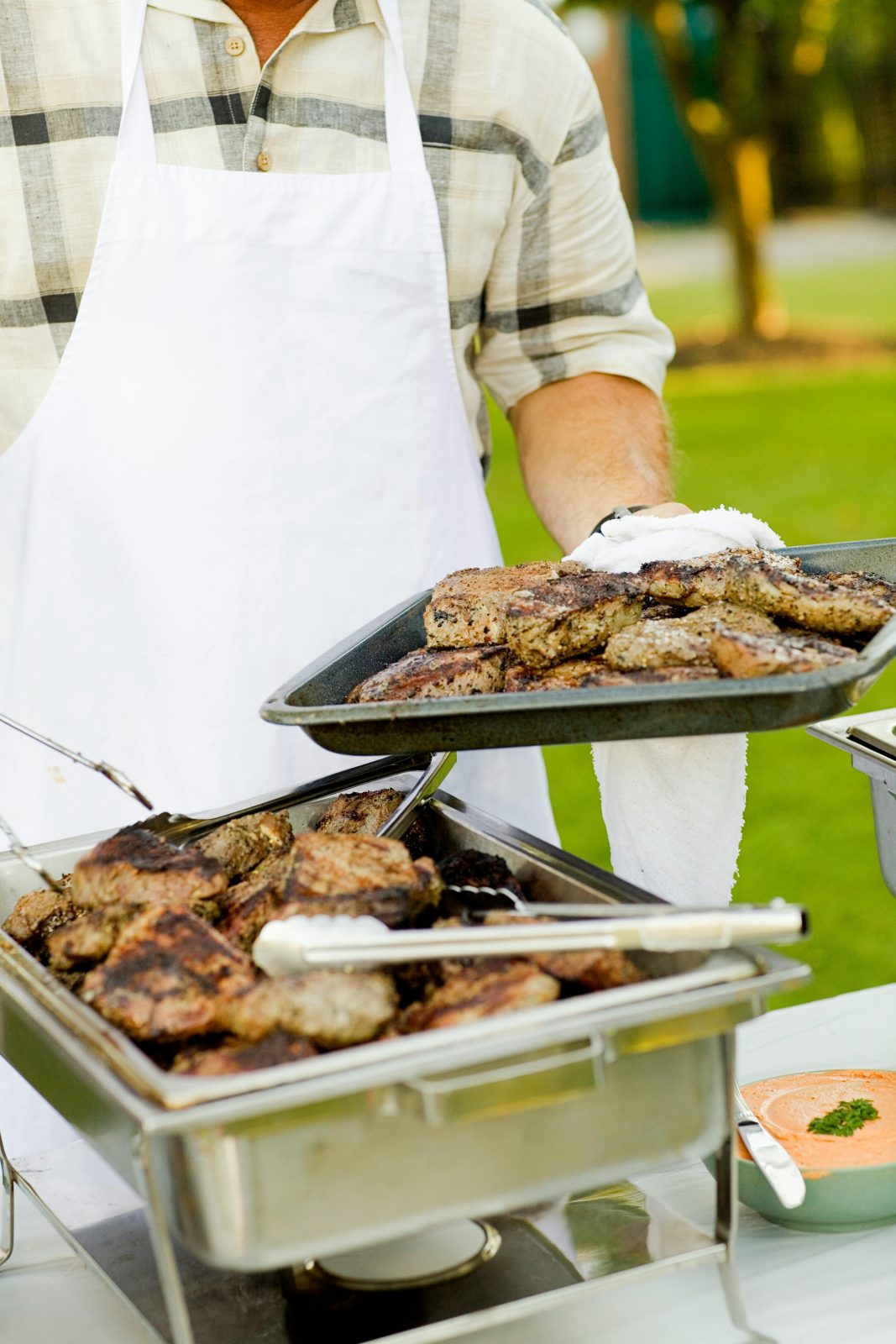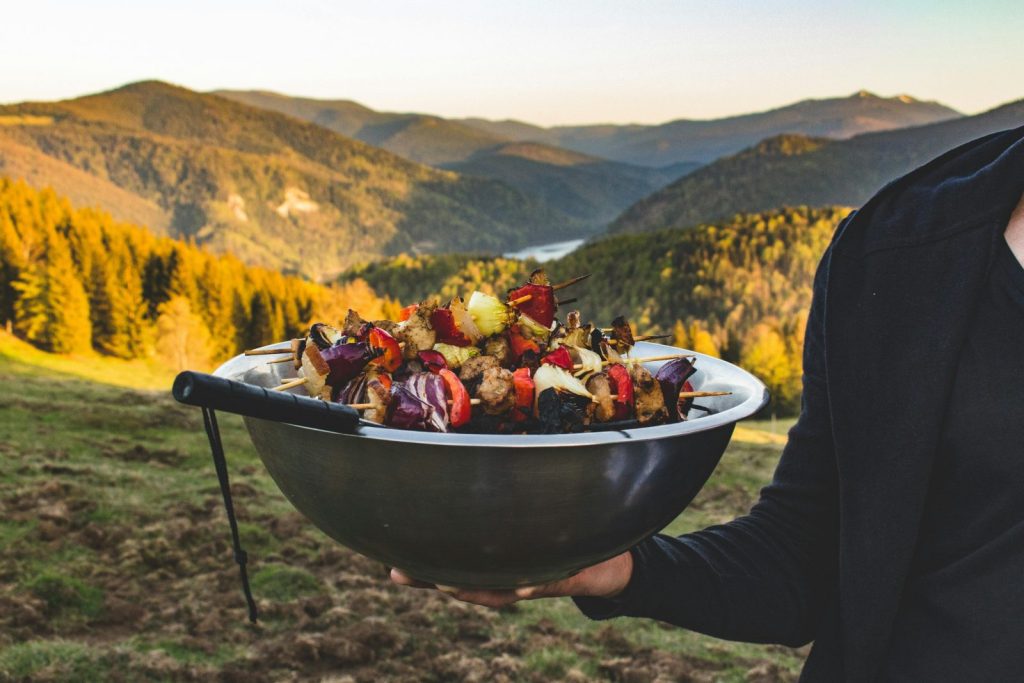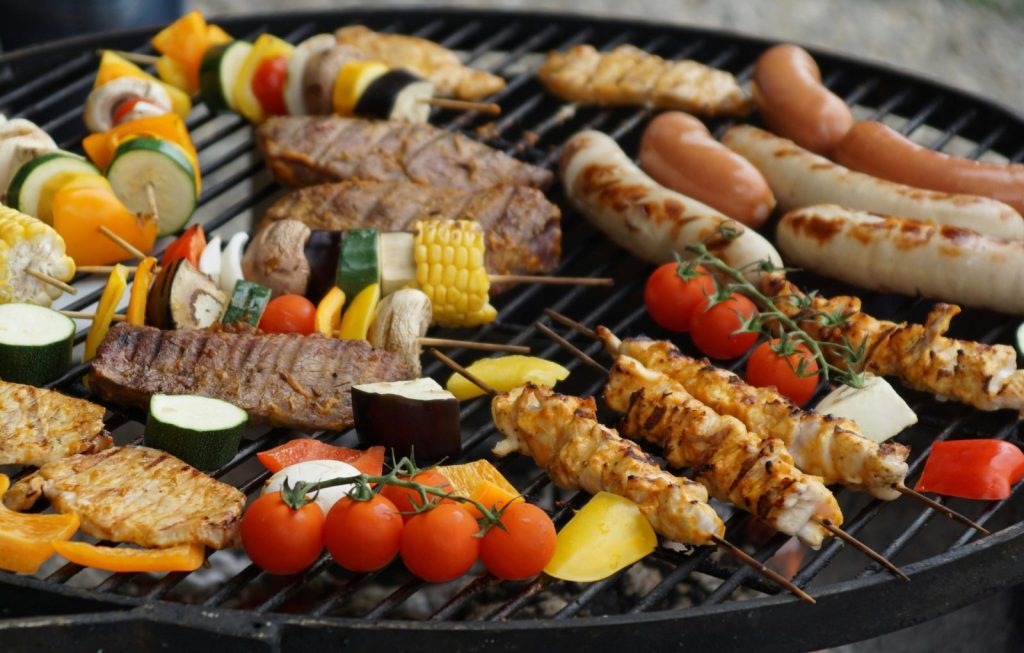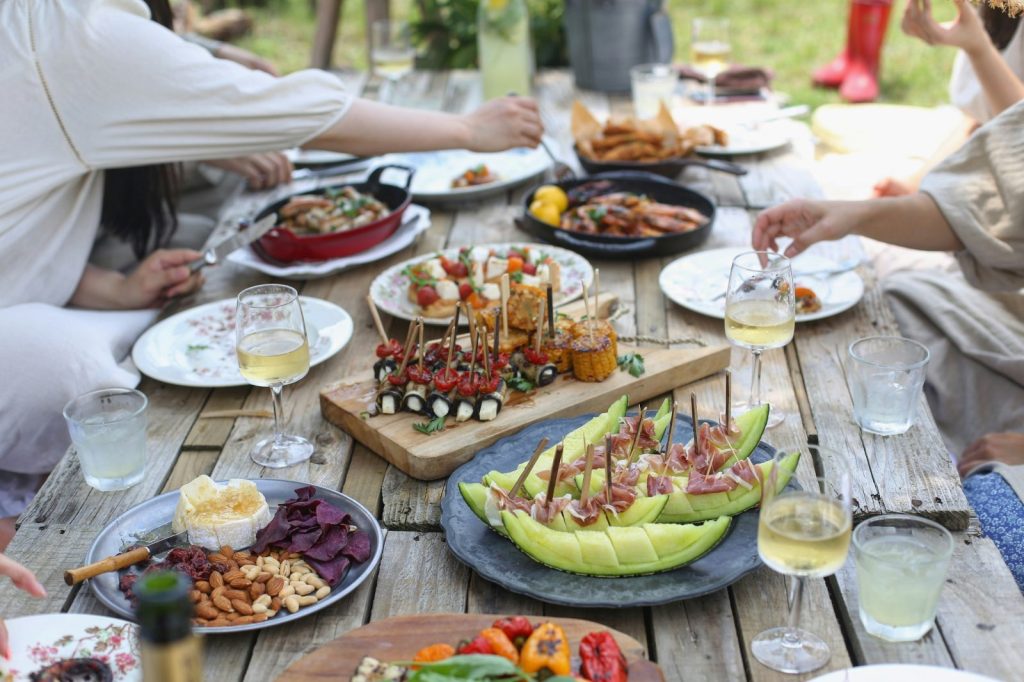
What is sustainable living? How Your Choices Shape a Sustainable Present and Future
By embracing sustainable living, we adopt practices that contribute to the well-being of the environment, society, and economy.

Welcome to a summer filled with sunshine, laughter, and the irresistible aroma of burning BBQs and picnics in the great outdoors. But wait—are our leisurely pursuits in harmony with the health of our planet?
We believe that sustainability should accompany us in every aspect of our lives, even during moments of relaxation and enjoyment.
In this blog, discover how to host delightful summer get-togethers that are both fun and eco-friendly.
Summer BBQs are a beloved tradition, bringing friends and families together to enjoy delicious food and warm weather. People enjoy grilling food, from juicy burgers and steaks to vibrant vegetables and plant-based options.
The sound of roasting food, the aroma of smoky flavors, and the joy of dining outdoors create unforgettable memories. Whether it's a backyard gathering, a park picnic, or a beachside cookout, BBQs with cold beer exemplify summer fun and relaxation.
Yet, the reality of the environmental footprint of traditional BBQs and picnics is sobering.
In 2020, Britain hosted 189.9 million BBQs, significantly boosted by the coronavirus pandemic. The research found that coal BBQs with an average British household of three people using beef produced 17.4kg of CO2 each. While not all households use beef, it remains the most popular choice, forming the basis of these calculations (1).
Cruise ships, with 31.7 million passengers in 2023, emitted 15,850,000 tonnes of CO2, based on an average of 500kg per passenger on a 5-night cruise. British BBQs accounted for 21% of this total. Experts predict BBQ emissions will reach 2.9 million tonnes of CO2 in 2024.

Photo by Vlad Bagacian: https://www.pexels.com/photo/person-holding-a-bowl-full-of-barbecue-1061641/
Furthermore, scientists studying the environmental impact of food choices have found that a summer barbecue for four people emits more greenhouse gases than an 80-mile car trip (2).
BBQs have a significant environmental impact primarily due to the ingredients used, with beef having the highest footprint (3, 4,). Reducing beef consumption in favor of poultry or pork can lower this impact (5). Additionally, food waste from BBQs contributes substantially to environmental harm. Consumers can mitigate this by buying only what they need, storing food properly, and reusing leftovers.

Photo by Pixabay: https://www.pexels.com/photo/barbecues-in-charcoal-grill-533325/
Proper disposal of grilling devices is also crucial. Extending the lifespan of grills and disposing of them correctly can reduce their environmental burden. Lastly, choosing the right type of grill matters; avoiding disposable grills in favor of electric ones, particularly when powered by renewable energy, can further minimize environmental impact (6).
From disposable plastic utensils and single-use plates to excess food waste and carbon emissions, the impact can be substantial. However, it's not all doom and gloom. Small, thoughtful changes in our approach to these beloved summer pastimes can yield significant positive environmental effects. Join us as we explore inventive and practical green BBQ and picnic ideas to make this summer a season of sustainable celebration.
When planning a green BBQ or picnic, our choices for utensils and tableware can significantly impact the environment. Choose sustainable options that minimize waste and reduce the demand for single-use plastics.

Photo by Micheile OlivieStrauss: https://www.pexels.com/photo/brown-wooden-fork-and-knife-on-a-round-ceramic-plate-9859327/
Invest in reusable utensils made from bamboo, stainless steel, or silicone. These materials are durable and lightweight, making them perfect for outdoor settings. You can easily find sets that come with their carrying cases, which are convenient for picnics and BBQs. Wash them after use, and they're ready for your next gathering. This small change significantly reduces waste generated from disposable plastic cutlery.
For those occasions when carrying reusable tableware isn't feasible, opt for biodegradable options. Plates made from palm leaves, sugarcane, or bamboo, decompose much faster than plastic and are often just as sturdy. These eco-friendly choices offer the convenience of disposables without the environmental guilt. They blend beautifully with natural settings and contribute an eco-chic vibe to any event.
Read more on how to reduce reliance on single-use plastics here.
When planning a green BBQ or picnic, adopting zero-waste practices helps the environment and sets an example for your guests. Zero-waste aims to reduce what we trash; ensuring products are reused and reincorporated instead of being disposed of. Here's how to integrate these practices seamlessly into your outdoor gathering.
A great way to handle organic waste is by setting up a designated composting bin. You can explain to your guests where it is and what should go in it—fruit peels, vegetable scraps, and biodegradable plates. After the event, this can be turned into nutrient-rich compost for your garden, completing a sustainable lifecycle from table to soil.
Separate recycling bins are essential for a green event. Set out clearly labeled bins for plastics, metals, and glass. Place these bins in visible and accessible locations and perhaps add a sign detailing what can be recycled. As a host, making recycling easy encourages participation from everyone.
Plan your menu to minimize waste by preparing foods that can be easily reused or stored. Encourage guests to take leftovers home in reusable containers.

Photo by Lee Myungseong on Unsplash
Furthermore, you can get creative with leftovers, transforming them into new meals for the next day, which reduces food waste and provides an easy solution for your post-picnic meals.
Check out our previous post to discover how you can reduce food waste.
The ambiance of your picnic or BBQ is important, and it can be both beautiful and sustainable. Selecting eco-friendly decor sets the mood and displays your green principles. Here are some ideas that are simple yet effective in creating an eco-friendly setting.

Photo by Cup of Couple: https://www.pexels.com/photo/flowers-bouquets-in-vases-8471651/
Take advantage of the natural beauty of your outdoor setting. Use flowers, leaves, stones, and other natural elements to create a charming, earth-friendly decor. Consider using biodegradable or reusable items like bamboo sticks or flower petals to add to the aesthetic. You can also use solar-powered lights to add a gentle, eco-friendly glow to your evening event.
Instead of disposable paper products, prefer cloth napkins and tablecloths. These items look elegant and are better for the environment. Also, they can be washed and reused. Pick materials made from sustainable fabrics like organic cotton or linen. In addition to reducing waste, they add a touch of sophistication to your setting.
Incorporate these eco-friendly tips and take pride in knowing you are contributing to the environment. Making small changes that have a significant impact demonstrates that sustainability can naturally coexist with enjoying the great outdoors.
We've covered various aspects, from choosing sustainable food options to minimizing waste and selecting eco-friendly BBQ equipment. Remember, every small change matters.
We encourage you to implement these tips and share your experiences with us. Let us know your favorite green BBQ and picnic ideas in the comments!
Don't forget to subscribe to our blog for more tips on sustainable living, and follow us on social media to stay updated on eco-friendly initiatives and events.
Together, we can inspire others to host their eco-friendly gatherings and make a positive impact. Thank you for joining us in creating a greener, healthier future.

By embracing sustainable living, we adopt practices that contribute to the well-being of the environment, society, and economy.

Sustainability goes beyond admiration; it is a commitment to maintaining the delicate balance between our species and the planet.

Dive into the world of traditional board games and discover their diverse health benefits. Explore expert insights on how these games contribute to well-being and mental acuity.

Natural deodorant is an effective and environmentally friendly product. It is a healthy option since traditional antiperspirants often contain chemicals.

Let’s discover the environmental impact of household waste, and hopefully, this will inspire us to create a new mindset.
Welcome to Sustainable Living by Science. With our scientific mindset, we are exploring how to nurture our well-being while caring for the environment. We are sharing the meaning of sustainability through evidence-based practices. Join us on this journey towards a greener, healthier future where science guides us to make the best choices for ourselves, the planet, and others.
All content is © 2024 by Sustainable Living by Science. All rights reserved.